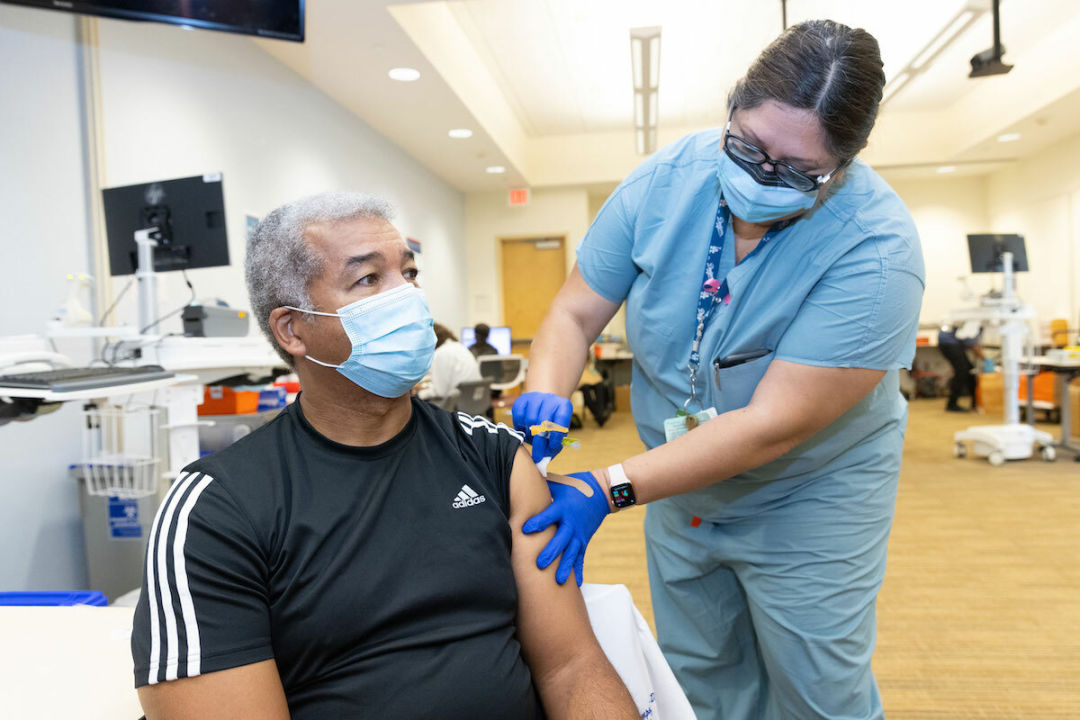Three Essential Reasons to Get your COVID-19 Booster

The global battle against COVID-19 has disrupted all of our lives and brought profound loss and heartbreak; but after almost 2 long years, we know what works best for protecting ourselves and our loved ones.
Slowing the spread requires appropriate physical distancing, masking, hand-washing, testing, and — most important — vaccination.
The more people who get vaccinated against COVID-19, the more lives can be saved and the sooner this unprecedented global health crisis will end. And, the vaccine has demonstrated historic levels of safety and effectiveness, with more than 4.2 billion doses administered worldwide.
While the vaccine is still working well to prevent severe illness, recent data suggests vaccination becomes less effective at preventing asymptomatic infection or mild illness over time. That’s why the Centers for Disease Control and Prevention recommends that everyone age 16 and older get a booster dose 6 months after primary vaccination with Pfizer or Moderna and 2 months after Johnson & Johnson.
“Booster doses are essential in slowing the spread of the virus and protecting people from hospitalization and death,” said Craig Robbins, MD, medical director for the Kaiser Permanente Care Management Institute’s Center for Clinical Information Services and Education.
“The need for a booster dose doesn’t mean the vaccines don’t work. On the contrary, the fact that boosters provide additional protection over time shows that vaccination continues to be our best weapon in fighting COVID-19. “
Top 3 reasons to get your booster
According to the CDC and Kaiser Permanente experts, you should get the COVID-19 vaccine and then your booster dose once you’re eligible for several reasons.
- You’ll help slow the evolution of variants. The vaccine and the booster help reduce the spread of COVID-19. The less the coronavirus is spreading from person to person, the less opportunity the virus has to evolve into new variants. Although we don’t have all the answers on the new omicron variant — which appears to be highly transmissible — initial data suggests that COVID-19 boosters help broaden and strengthen protection against omicron, delta, and other variants.
- You’ll contribute to reducing the severity of another surge. Delta remains the dominant variant in the United States and is driving a recent increase in cases and hospitalizations. Although breakthrough infections do occur among people who are vaccinated, the vast majority of people requiring hospitalization are not vaccinated. A booster dose can add additional protection against a breakthrough infection and severe illness.
- You’ll give yourself maximum protection now, when it’s needed most. With the delta variant continuing to drive the latest surge, time is of the essence. While the vaccine may be reformulated to address the omicron variant in the future, getting a booster now can provide you and your family with the best protection available today and more quickly slow the spread of the virus.
Learn more about the COVID-19 booster shots. To schedule a vaccination or booster shot appointment, visit kp.org/covidvaccine/nw.
